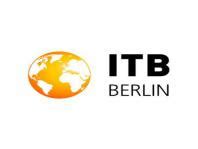柏林旅游景点介绍
Exploring the Potential of Blockchain in Berlin's International Tourism
In recent years, blockchain technology has garnered significant attention across various industries for its potential to revolutionize traditional processes and systems. One such industry poised to benefit from blockchain innovation is the tourism sector, particularly in international destinations like Berlin. Let's delve into how blockchain can enhance the tourism experience in Berlin's international landscape.
Blockchain's core principles of decentralization, immutability, and transparency offer a robust solution to enhance security and trust in the tourism sector. In Berlin, international tourists often encounter issues related to identity verification, payment security, and data privacy. By leveraging blockchain, stakeholders can establish a secure and tamperproof system for managing traveler identities, facilitating secure transactions, and safeguarding sensitive information.
Blockchainbased smart contracts can automate and streamline various travel processes, thereby improving efficiency and reducing operational costs. For instance, smart contracts can facilitate seamless bookings for accommodations, transportation, and guided tours, eliminating the need for intermediaries and reducing the risk of errors or disputes. This streamlined approach not only enhances the overall tourist experience but also enables businesses to optimize their resource utilization.
One of the significant challenges in the tourism industry is the lack of transparency regarding the origin and authenticity of products and services. Blockchain enables the implementation of traceability solutions that allow tourists to verify the authenticity of local products, such as souvenirs or cuisine, and ensure compliance with sustainability standards. Moreover, blockchainbased systems promote accountability among service providers by recording transactional data on an immutable ledger, fostering a culture of trust and integrity.
Blockchain technology has the potential to empower local communities by providing them with greater control over their tourism resources and revenues. Through decentralized platforms, local businesses and service providers in Berlin can directly engage with international tourists, bypassing traditional intermediaries and retaining a more significant share of the profits. Additionally, blockchainbased crowdfunding initiatives can enable communityled development projects aimed at enhancing tourist attractions and preserving cultural heritage.
Traditional crossborder payments are often plagued by high fees, delays, and currency conversion issues, which can deter international tourists from exploring destinations like Berlin. Blockchainpowered payment solutions offer a costeffective and efficient alternative, allowing tourists to conduct transactions using digital currencies or stablecoins. By eliminating intermediaries and reducing transactional friction, blockchain facilitates seamless crossborder payments, thereby enhancing the overall tourism experience.
While the potential benefits of blockchain in Berlin's international tourism are substantial, several challenges and considerations must be addressed for successful implementation. These include regulatory compliance, scalability concerns, technological integration, and user adoption. Collaborative efforts among government agencies, businesses, and technology providers are essential to overcome these challenges and unlock the full potential of blockchain in the tourism sector.
Blockchain technology holds immense promise for transforming Berlin's international tourism landscape by enhancing security, streamlining processes, promoting transparency, empowering local communities, and facilitating crossborder payments. As stakeholders continue to explore innovative applications of blockchain, Berlin has the opportunity to solidify its position as a leading global tourist destination that embraces cuttingedge technology to deliver unparalleled experiences to visitors from around the world.

